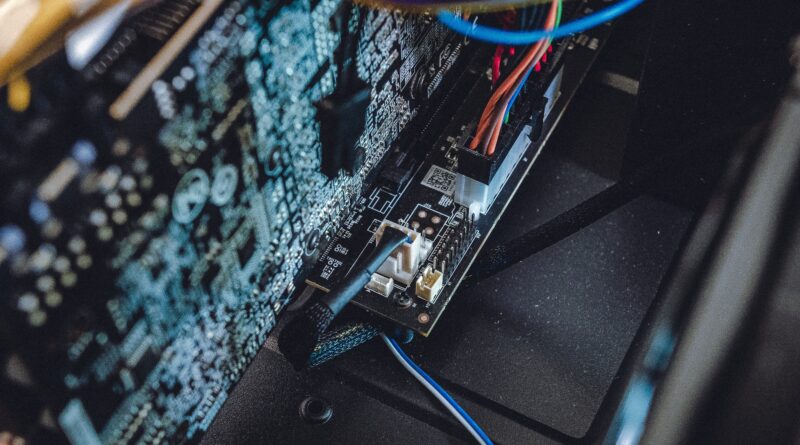Testing Matters: Raising Awareness about the Importance of Electrical Testing
Introduction
In the ever-evolving realm of technology, the intricate practice of electrical testing assumes a paramount role in guaranteeing the safety, dependability, and efficiency of electrical systems. From residential abodes to vast industrial complexes, a comprehensive approach to electrical testing becomes indispensable for the identification of potential hazards, the minimization of downtime, and the optimization of overall performance.
The Significance of Electrical Testing Electrical testing serves a multitude of purposes, all of which contribute to the overall integrity of electrical systems. Let us explore the primary objectives of electrical testing:
- Ensuring Safety One of the foremost rationales behind conducting electrical testing is to ensure the safety and well-being of individuals and property. Defective electrical systems can give rise to electrical shocks, fires, and even fatalities. Regular testing allows for the identification, mitigation, and elimination of potential hazards, thus diminishing the likelihood of accidents and safeguarding all stakeholders.
- Enhancing System Reliability The reliability of any electrical system, whether it be a residential structure or a sprawling industrial plant, assumes great significance. Electrical testing aids in the identification of weak points, faults, or inefficiencies within the system that may cause unforeseen failures or disruptions. By proactively rectifying these issues, the reliability of the electrical infrastructure can be significantly enhanced, thereby minimizing costly downtime and inconvenience.
- Compliance with Regulations Adhering to electrical safety standards and regulations is imperative for both individuals and organizations. Electrical testing ensures compliance with these regulations, such as the National Electrical Code (NEC) in the United States, guaranteeing that electrical installations meet the necessary guidelines. Compliance not only mitigates legal consequences but also showcases a commitment to safety and professionalism.
- Promoting Energy Efficiency In an era where energy conservation holds paramount importance, electrical testing plays a crucial role in optimizing energy usage. By identifying energy losses, inefficient components, or outdated systems, testing enables the implementation of energy-efficient measures. This not only leads to a reduction in electricity bills but also fosters sustainability by minimizing carbon footprints.
Types of Electrical Testing Electrical testing encompasses various methodologies and techniques, each tailored to evaluate different aspects of an electrical system. Let’s delve into some of the common types of electrical testing:
- Insulation Resistance Testing Insulation resistance testing is carried out to assess the integrity of insulation materials in electrical conductors. It aids in the identification of any degradation or damage that may result in electrical leakage or short circuits. Early detection of insulation weaknesses allows for appropriate measures to be taken, thereby preventing catastrophic failures.
- Ground Fault Testing Ground faults occur when an electrical current finds an unintended path to the ground. This can pose significant risks, including electrical shocks and fires. Ground fault testing assumes utmost importance in identifying these faults and implementing corrective measures to safeguard individuals and property.
- Load Testing Load testing evaluates the performance and capacity of an electrical system under normal and peak load conditions. It helps determine whether the system can handle the required electrical load without exceeding its capacity. By conducting load testing, potential bottlenecks or overloads can be identified and rectified, thereby ensuring optimal system performance.
- Circuit Breaker Testing Circuit breakers play a vital role in protecting electrical systems from excessive current and short circuits. Regular circuit breaker testing ensures that these protective devices are functioning correctly and will respond appropriately in the event of a fault. This testing helps prevent system damage and enhances overall safety.
The Advantages of Electrical Testing Proactive electrical testing brings forth numerous benefits that positively impact both individuals and organizations. Let’s explore some of the key advantages:
- Augmented Safety By identifying and addressing potential electrical hazards, testing significantly improves the safety of electrical systems, protecting people and property from harm. Early detection of faults and malfunctions enables timely repairs or replacements, minimizing the likelihood of accidents and injuries.
- Enhanced Reliability Regular electrical testing helps identify system weaknesses and vulnerabilities before they escalate into major issues. By promptly rectifying these concerns, the overall reliability of electrical systems is enhanced. This translates to reduced downtime, improved productivity, and increased confidence in the system’s performance.
- Compliance and Peace of Mind Conforming to electrical safety regulations not only ensures legal compliance but also provides peace of mind. Thorough electrical testing showcases the commitment of individuals and organizations to adhere to industry standards and prioritize safety. This compliance instills trust among stakeholders and fosters a positive reputation.
- Cost Savings Although electrical testing entails an initial investment, it offers long-term cost savings. Early detection of electrical faults prevents them from escalating into expensive repairs or replacements. Moreover, optimized energy usage resulting from testing leads to reduced electricity bills, resulting in significant savings over time.
Conclusion
In a world heavily reliant on electricity, the importance of comprehensive electrical testing cannot be overstated. By prioritizing safety, reliability, and energy efficiency, individuals and organizations can proactively address potential electrical issues and ensure smooth operations. Regular electrical testing not only mitigates risks but also fosters a culture of safety and compliance. Embracing the significance of electrical testing is a crucial step towards establishing a secure and efficient electrical infrastructure.




